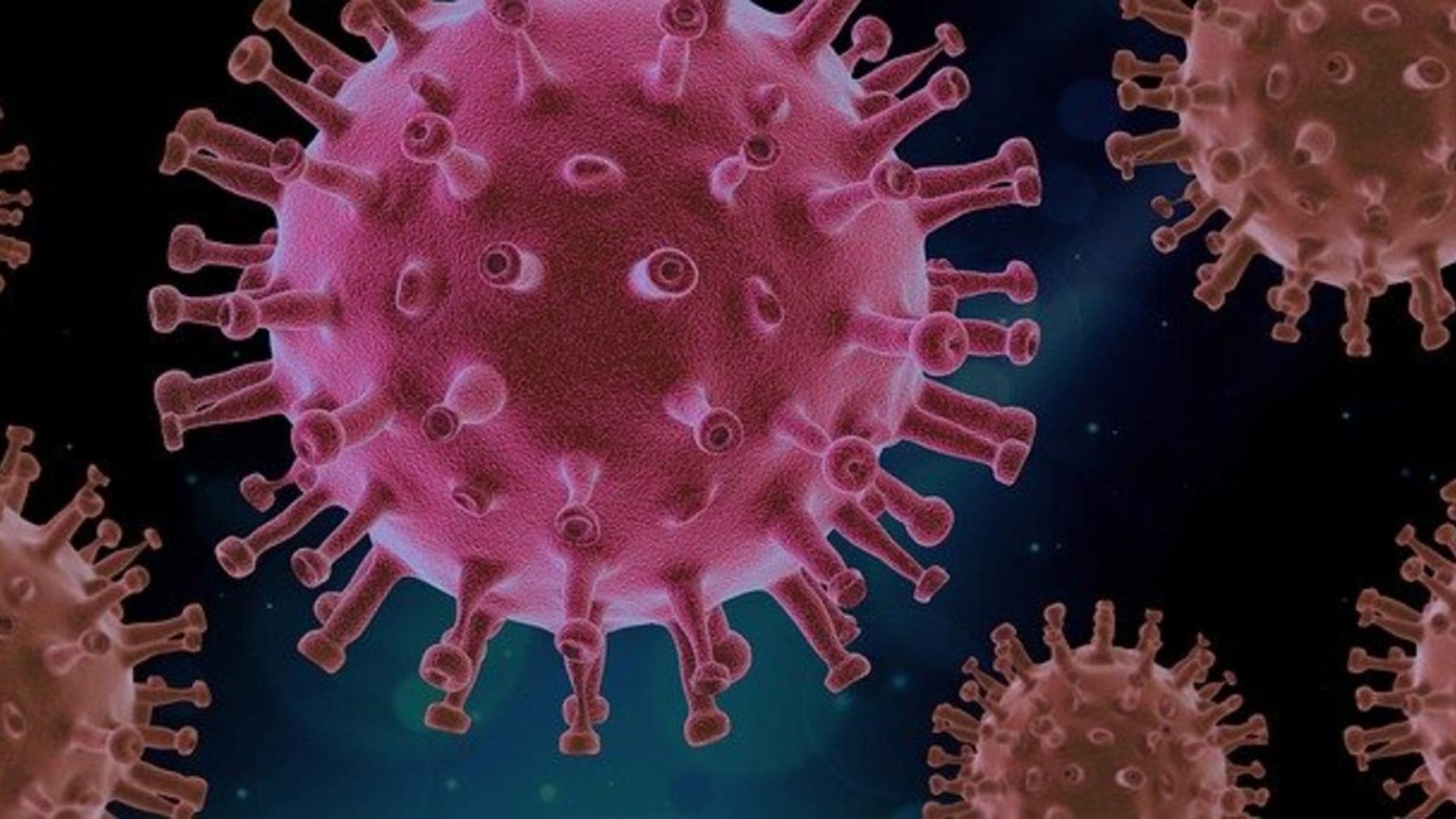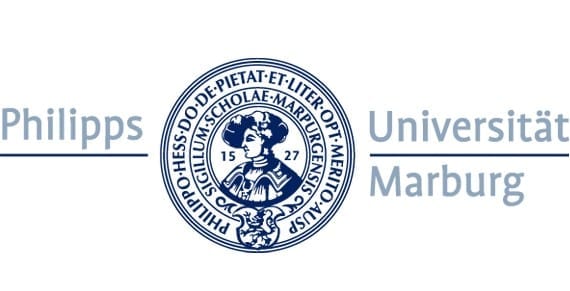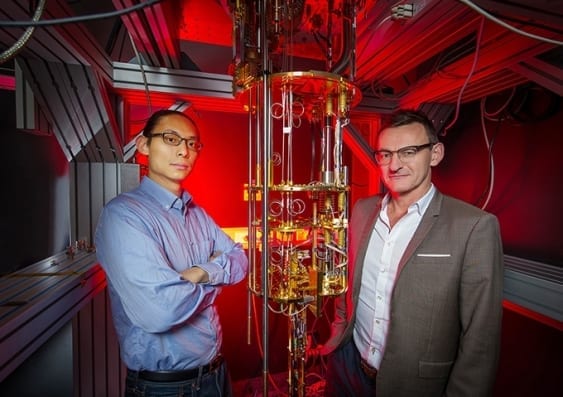via University of Waterloo
Researchers at the University of Waterloo are developing a DNA-based vaccine that can be delivered through a nasal spray.
The vaccine will work by using bacteriophage, a process that will allow the vaccine to replicate within bacteria already in the body and is being designed to target tissues in the nasal cavity and lower respiratory tract.
“When complete, our DNA-based vaccine will be administered non-invasively as a nasal spray that delivers nanomedicine engineered to immunize and decrease COVID-19 infections,” explains Roderick Slavcev, a professor in the School of Pharmacy who specializes in designing vaccines, pharmaceuticals and gene-therapy treatments. “This research combines the expertise of many and leverages existing technology developed by my team, which we’re reconfiguring for a COVID-19 application.”
When completed, the researchers aim to have the DNA-based vaccine enter cells in targeted tissues and cause them to produce a virus-like particle (VLP) that will stimulate an immune response in people.
The VLP will look similar to the structure of SARS-CoV-2 (the virus which causes COVID-19), but is harmless. This similarity will activate the body’s natural immune response to protect against viral infections comparable to the VLP, including SARS-CoV-2. It will also bind to receptors that SARS-CoV-2 would bind to, limiting the possible sites for transmission. By causing these changes in the body, the vaccine will build immunity against COVID-19 and decrease the severity of infections in progress – serving as both a therapeutic and a vaccine.
Every detail of the vaccine, from ensuring the bacteriophage target specific cells in the respiratory tract to creating a minimal VLP to impersonate SARS-CoV-2, is specifically engineered by the researchers and requires testing.
To achieve the design of such a complex project, Slavcev is teaming up with Emmanuel Ho, another professor at the School of Pharmacy, and Marc Aucoin, professor of chemical engineering. Ho’s team is designing the nanomedication that will be delivered by the nasal spray, which is currently being tested. Aucoin’s lab is constructing and purifying the VLP and boosting immunity following the initial administration of the therapeutic vaccine.
“It is the collaborative effort of our talented teams that makes this multidisciplinary project so feasible and necessarily efficient as a potential universal vaccine solution against SARS-CoV infections,” says Slavcev. “To practice science with such urgency alongside such talented colleagues and their students is not only immensely educational, it is extremely rewarding.”
Slavcev’s team has completed design of the bacteriophage delivery system and is currently modifying this system to apply to COVID-19. Additional design of components and further testing will take place later this year. Components of the research are supported by a grant from the Natural Sciences and Engineering Research Council of Canada.
Note: This research has not yet been peer-reviewed and is being released as part of UWaterloo’s commitment to help inform Canada’s COVID-19 response.
The Latest Updates from Bing News & Google News
Go deeper with Bing News on:
DNA-based COVID-19 vaccine
- UK Patients Testing World’s First Personalized mRNA Cancer Vaccine For Melanoma
British patients are currently undergoing trials for a groundbreaking mRNA cancer vaccine tailored specifically for melanoma, with potential applications for lung, bladder, and kidney cancers as well.
- U.S. FDA Approves Pfizer’s BEQVEZ™ (fidanacogene elaparvovec-dzkt), a One-Time Gene Therapy for Adults with Hemophilia B
Pfizer Inc. (NYSE: PFE) announced today that the U.S. Food and Drug Administration (FDA) has approved BEQVEZ™ (fidanacogene elaparvovec-dzkt) for the ...
- Arcturus Therapeutics to Report First Quarter Financial Results and Provide Corporate Update on May 8, 2024
Arcturus Therapeutics Holdings Inc. (the “Company”, “Arcturus”, Nasdaq: ARCT), a global messenger RNA medicines company focused on the development of ...
- COVID-19 vaccine-caused “turbo cancer” nonsense just keeps getting more turbocharged
No matter how implausible it is or how weak the evidence for it is, the myth that COVID vaccines cause "turbo cancer" just won't die. Quite the contrary, alas. Antivaxxers are—dare I say?—turbocha ...
- A one-shot vaccine for COVID, flu and future viruses? Researchers say it's coming
But what if it were possible to protect against COVID and the flu, and other unknown viruses that haven't yet emerged, with just one shot? If that became reality, seasonal or annual boosters would be ...
Go deeper with Google Headlines on:
DNA-based COVID-19 vaccine
[google_news title=”” keyword=”DNA-based COVID-19 vaccine” num_posts=”5″ blurb_length=”0″ show_thumb=”left”]
Go deeper with Bing News on:
COVID-19 vaccine
- WHO picks JN.1 variant for next set of COVID vaccines
Following a meeting of an advisory panel this week, the World Health Organization (WHO) recommended drugmakers to update their COVID-19 vaccine formulations to reflect the currently dominant ...
- Wooster native struggling with possible after-effects of COVID-19 vaccine
She was diagnosed with POTS − Postural Orthostatic Tachycardia Syndrome, a disorder in which the autonomic nervous system doesn't function normally.
- CDC encourages older adults to get additional COVID-19 vaccine dose
Adults age 65 and older are encouraged to receive an updated dosage of the COVID-19 vaccine, the Centers for Disease Control and Prevention announced April 25.
- Undocumented Latinx patients got COVID-19 vaccine at same rate as US citizens, study finds
For undocumented Latinx patients who sought care in the emergency room during the pandemic, the reported rate of having received the COVID-19 vaccine was found to be the same as U.S. citizens, a new ...
- Psychiatric Disorders Do Not Decrease COVID-19 Vaccine Effectiveness
Researchers conducted a retrospective cohort analysis to evaluate the effectiveness of COVID-19 vaccination among US adults with common psychiatric disorders.
Go deeper with Google Headlines on:
COVID-19 vaccine
[google_news title=”” keyword=”COVID-19 vaccine” num_posts=”5″ blurb_length=”0″ show_thumb=”left”]











